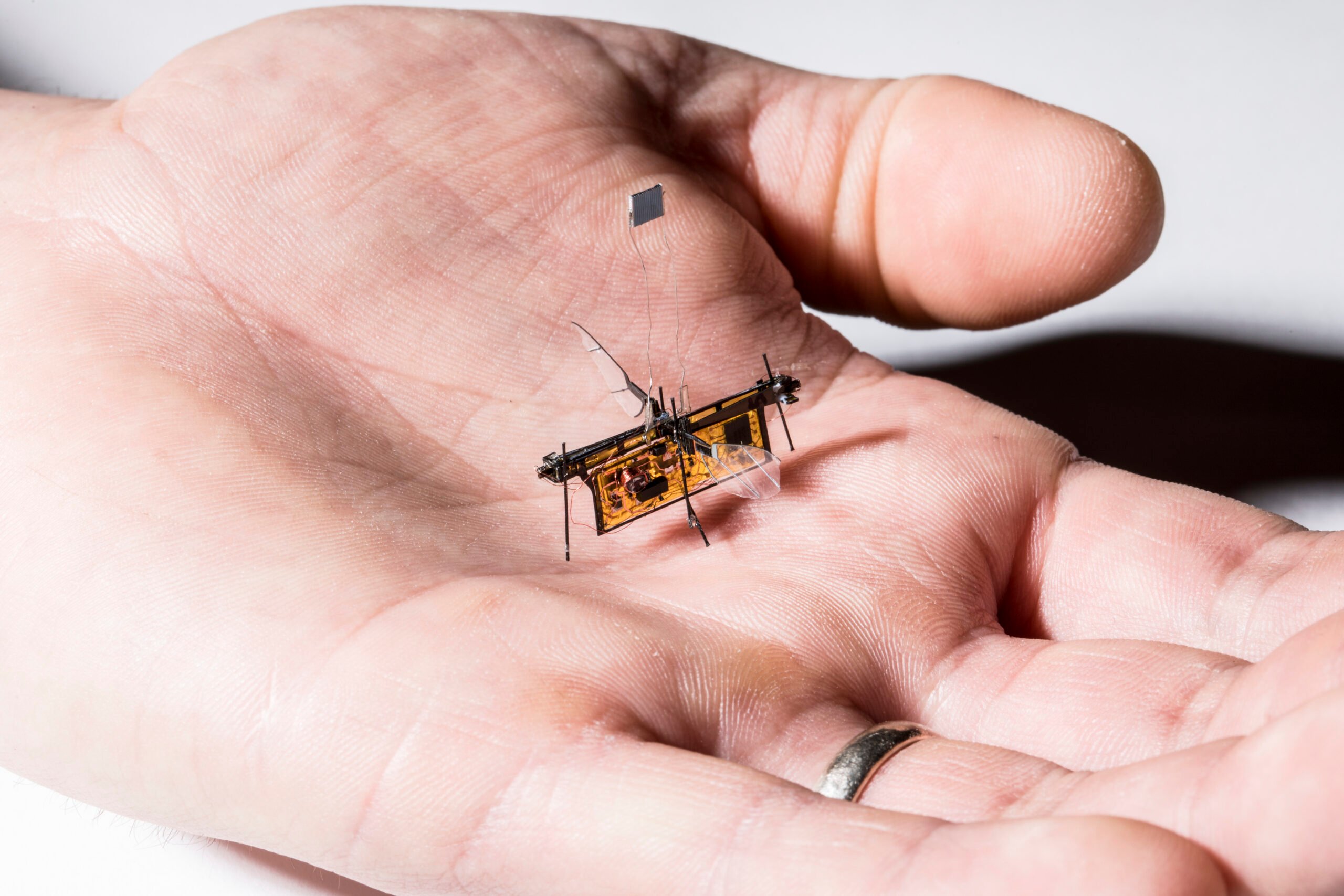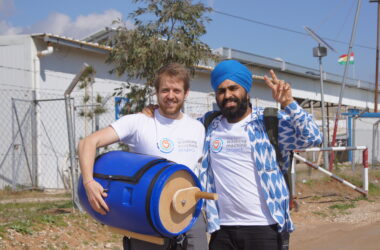The University of Bath is leading a trail of smart bandages using samples from burns patients from four UK hospitals. The bandage works by changing colour when it detects an infection.
Smart Bandage technology would allow doctors to detect infection earlier. This would improve treatment for burns patients and reduce the use of antibiotics which would help combat the threat of drug-resistant bacteria.

Toby and Thet (Naing Thet), discuss the infection detecting colour-changing dressings they are developing in the lab. Credit bath.ac.uk
The trial will take place at Southmead Hospital Bristol, Bristol Royal Hospital for Children, Chelsea and Westminster Hospital and Queen Victoria Hospital East Grinstead.
The bandages themselves will not be used on patients. Instead, dressings and swabs taken from patients will be used in lab tests on campus at the University of Bath.
The double-blind trial will allow the team behind the technology to establish statistically how sensitive the bandages are to infections.
The samples from the trial will also be used by a team at the University of Brighton who are studying the genomes of infection-causing bacteria to help improve its performance.
Subscribe
If you enjoyed this article subscribe to our mailing list to receive weekly updates!
The technology will be welcomed by medical staff working within burn wards. The nature of burn injuries means it is often very difficult for staff to see the signs of a true infection. Not only would the bandage provide an early-warning system for those with infections, but it would also reduce the number of unnecessary tests in patients who don’t have infections.
This would offer both a financial saving to cash-strapped hospital wards, and save patients having to remove wound dressings. Unnecessarily removing a burn dressing can be a painful and distressing process, slow healing and cause scarring.
Additionally, the standard treatment for a suspected infection is often a course of antibiotics. The Smart Bandage would allow doctors to reduce the number of antibiotics prescribed, saving the NHS money of drugs and helping to tackle the global problem of antibiotic resistance.
The studies lead – Professor Toby Jenkins – explained that they “believe our bandages have great potential to improve outcomes for patients, reduce unnecessary use of antibiotics and save the NHS money” adding that “these trials are an exciting and essential step towards getting the bandages into hospitals to help treat people, allowing us to find out exactly how well they work using real samples from patients. We hope as many people as possible agree”.
If the trial is a success, it is hoped that bandages could start being manufactured in 2017.
The trial has been funded by the Medical Research Council (MRC).








